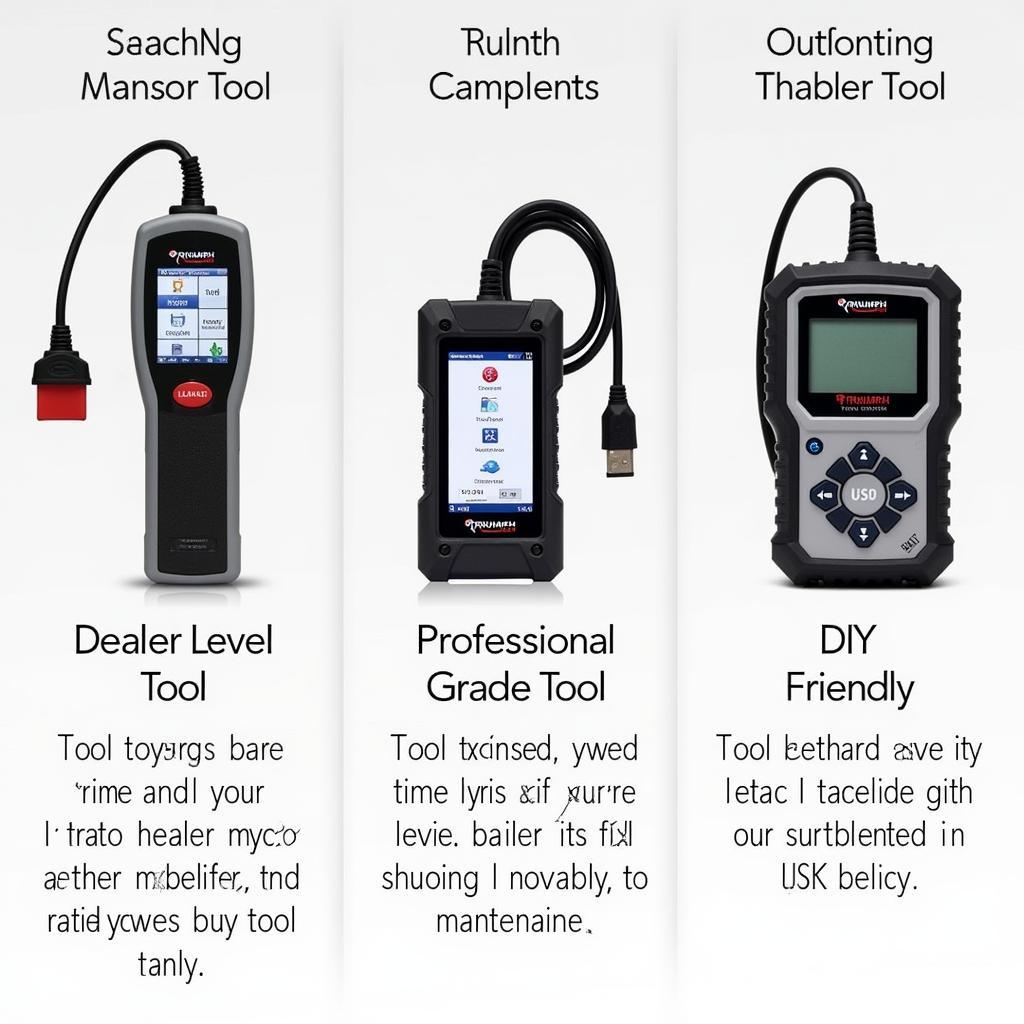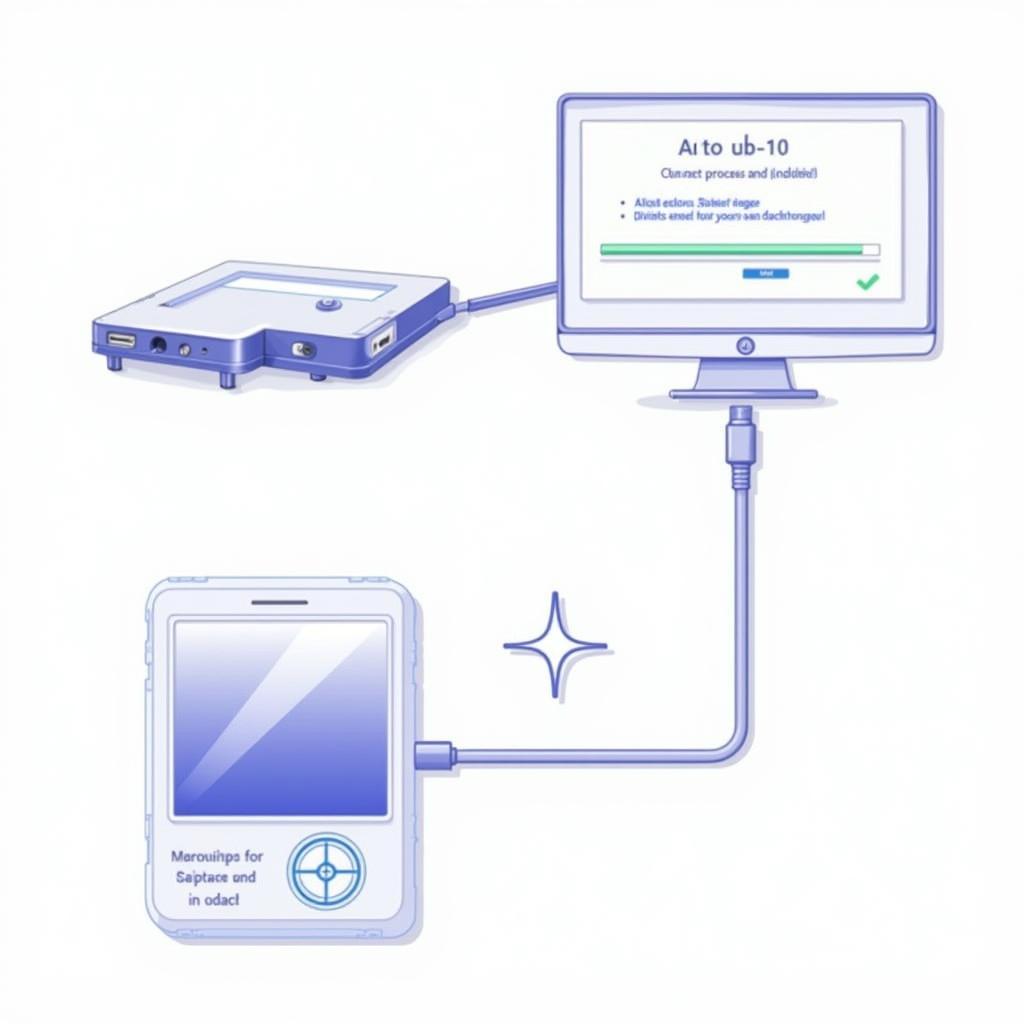In today’s digitally driven world, our cars are increasingly reliant on complex electronic systems. Gone are the days of simple mechanical repairs; modern vehicles require sophisticated diagnostic tools to identify and address issues. This is where network diagnostic tools come into play. These powerful tools act as a window into your vehicle’s internal network, providing crucial information about its health and performance.
Why Network Diagnostic Tools are Essential for Modern Car Repair
Modern vehicles are essentially computers on wheels, with multiple electronic control units (ECUs) communicating over a network. When a problem arises, pinpointing the source can be challenging without the right tools. Network diagnostic tools offer a significant advantage by allowing you to:
-
Access and Interpret Data: Network diagnostic tools allow you to tap into the vehicle’s network and retrieve data from various ECUs. This data can include error codes, sensor readings, and system parameters, providing valuable insights into the problem.
-
Diagnose Complex Issues: Intermittent problems or issues involving multiple systems can be notoriously difficult to diagnose. Network diagnostic tools excel in these scenarios by providing a comprehensive view of the vehicle’s electronic systems, enabling you to identify the root cause more effectively.
-
Enhance Efficiency: By providing accurate and detailed information, network diagnostic tools help you streamline the diagnostic process. This saves time and effort, leading to quicker repairs and increased productivity.
Types of Network Diagnostic Tools
The market offers a wide range of network diagnostic tools, each with unique features and capabilities. Choosing the right tool depends on your specific needs and budget. Some common types include:
1. OBD-II Code Readers:
These entry-level tools connect to the vehicle’s OBD-II port and can read and clear basic diagnostic trouble codes (DTCs). They are affordable and suitable for DIY enthusiasts and small workshops.
2. Advanced Scan Tools:
Offering a step up from basic code readers, these tools provide more in-depth diagnostic capabilities. They can access live data streams, perform actuator tests, and support multiple vehicle makes and models.
3. Factory-Level Diagnostic Tools:
These tools are designed for specific car manufacturers and provide the highest level of diagnostic functionality. They allow access to all vehicle systems, including programming and coding capabilities, making them ideal for dealerships and specialized repair shops.
Key Features to Consider
When choosing a network diagnostic tool, several essential features deserve your attention:
-
Vehicle Coverage: Ensure the tool supports the makes and models you work with regularly. Some tools offer broad coverage, while others specialize in specific manufacturers.
-
Software Functionality: The software interface should be user-friendly and intuitive, with features tailored to your needs. Consider factors such as data logging, graphing capabilities, and technical support availability.
-
Connectivity Options: Modern diagnostic tools offer various connectivity options, including USB, Wi-Fi, and Bluetooth. Choose a tool that provides the flexibility and convenience you require.
-
Updates and Support: Regular software updates are crucial for maintaining compatibility with the latest vehicle models and technologies. Opt for a tool from a reputable manufacturer that provides ongoing software updates and reliable technical support.
 Mechanic reviewing diagnostic data on a laptop
Mechanic reviewing diagnostic data on a laptop
Maximizing the Benefits of Network Diagnostic Tools
To fully leverage the potential of your network diagnostic tool, consider these tips:
-
Invest in Training: Proper training is essential to understand the tool’s full capabilities and interpret the data effectively. Numerous online and in-person training courses are available to enhance your diagnostic skills.
-
Stay Updated: The automotive industry is constantly evolving, with new technologies and vehicle systems emerging regularly. Stay informed about the latest advancements and seek opportunities to expand your knowledge base.
-
Embrace Data Analysis: Network diagnostic tools provide a wealth of information. Learn to analyze the data critically, identify patterns, and use it to make informed diagnostic decisions.
-
Network with Peers: Join online forums or attend industry events to connect with other automotive professionals. Sharing experiences, challenges, and best practices can enhance your understanding and expertise in using network diagnostic tools.
“As a seasoned mechanic, I can confidently say that network diagnostic tools have revolutionized the way we approach car repair. They’ve become our most valuable asset, enabling us to solve complex problems efficiently and accurately.” – John Smith, Master Automotive Technician
Conclusion
Network diagnostic tools are indispensable for anyone involved in modern car repair. By providing access to critical vehicle data and enabling sophisticated diagnostics, these tools empower mechanics, technicians, and car enthusiasts to address electronic issues effectively. Investing in the right network diagnostic tool and continuous learning will undoubtedly pay dividends in terms of improved diagnostic accuracy, increased efficiency, and ultimately, greater customer satisfaction.
Need expert advice or assistance with automotive diagnostic tools? Contact ScanToolUS at +1 (641) 206-8880 or visit us at 1615 S Laramie Ave, Cicero, IL 60804, USA.



